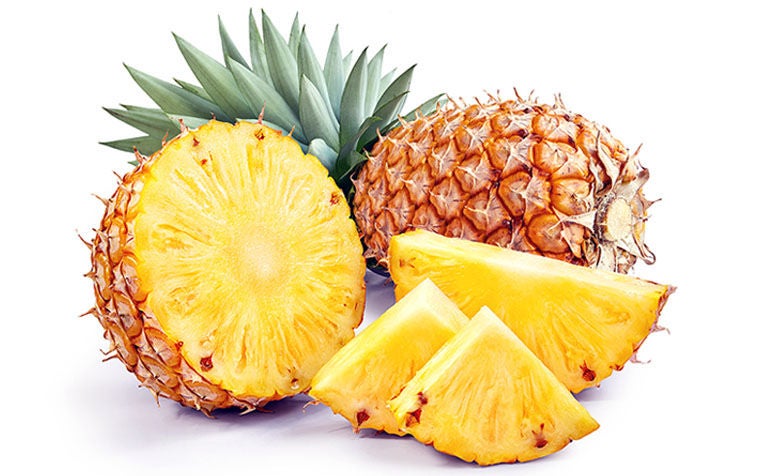
Pineapple boasts health benefits such as being a good source of vitamins and minerals, and supports eye and heart health.
Tasty, easily available all-year round and affordable, it's no wonder the pineapple is a favourite fruit among Southeast Asians. You'll also be surprised by its wide range of health benefits.
Dietitian Phoebe Thong from Outram Community Hospital (OCH), under SingHealth Community Hospital (SCH), explains more. SCH is a member of the SingHealth group.
5 Health benefits of pineapple
1. Rich in vitamins and minerals
Pineapples are a good source of vitamins and minerals, including vitamin C, vitamin B6, and manganese.
Vitamin C helps to boost the immune system, promote skin health, and protect against oxidative stress.
Vitamin B6 plays a role in maintaining healthy brain function, supporting energy production, and promoting hormone balance.
Manganese provides antioxidant properties and aids in healthy growth and metabolism.
2. Anti-inflammatory properties
Pineapples contain bromelain, a group of enzymes that have anti-inflammatory properties.
Bromelain has been shown to reduce inflammation in the body, making it helpful for conditions such as arthritis, allergies, and digestive issues. It has also been shown to have a positive effect on athletic performance, reducing muscle soreness and injury recovery time.
3. Supports digestion
Pineapples are a good source of fibre, which is important for digestive health.
Fibre helps to regulate bowel movements, promote healthy gut bacteria, and reduce the risk of digestive issues such as constipation, and diarrhoea.
Pineapples also contain digestive enzymes, which can help to break down food and improve digestion.
4. Boosts eye health
Pineapples are rich in vitamin A and beta-carotene, both of which are important for maintaining eye health.
Vitamin A helps to prevent age-related macular degeneration, the leading cause of vision loss in older adults.
Beta-carotene is converted into vitamin A in the body, and has been shown to protect against cataracts and other age-related eye problems.
5. Supports heart health
Pineapples contain potassium and fibre, both of which are important for maintaining heart health.
Potassium helps to regulate blood pressure, reducing the risk of heart disease and stroke.
Fibre helps to lower cholesterol levels, which can reduce the risk of heart disease.
5 Easy ways to add pineapple to your diet
In terms of Asian-style cuisine, here are some common ways to prepare pineapples:
Pineapple fried rice: This dish is a popular street food in Southeast Asia and is made by stir-frying rice with pineapple, vegetables, and meat.
Pineapple curry: This sweet and spicy dish combines diced pineapple with spices and vegetables to create a flavourful and hearty meal. Use coconut milk sparingly if needed!
Pineapple salad: This fresh and crunchy salad combines diced pineapple with herbs, vegetables, and a tangy dressing.
Pineapple skewers: This simple and delicious snack is made by grilling or roasting diced pineapple on a skewer.
Pineapple smoothie: This refreshing and healthy drink combines fresh pineapple with milk, yogurt, or ice cream to create a sweet and creamy smoothie.
Nutritional analysis of pineapple
A slice of pineapple (140g) contains approximately:
Calories | 59.61kcal |
Carbohydrates | 11.48g |
Protein | 0.84g |
Fat | 0.28g |
Fibre | 2.52g |
Water | 121.52g |
In conclusion, pineapples are a nutritious and delicious fruit that offer a wide range of health benefits. Whether eaten raw, cooked, or blended into a smoothie, pineapples are a great addition to any healthy diet.
Remember to also include whole grains, lean proteins and other colourful fruits and vegetables as part of a healthy balanced diet.
Ref: I23
Check out the health benefits of other popular local fruits
Papaya: Plenty to Be 'Yaya' (Proud) About
Contributed by

















 Get it on Google Play
Get it on Google Play